Phil Ochs is A Complete Unknown
While Bob Dylan became a living legend, Greenwich Village's most earnest folksinger has been largely forgotten
This week, the Academy of Motion Picture Arts and Sciences announced eight Academy Award nominations for A Complete Unknown, a biopic about one of the most exhaustively-documented artists of the 20th Century.
Okay, that’s a joke. I like Bob Dylan as much as the next guy (provided The Next Guy isn’t Ray Padgett, who writes the terrific Substack Flagging Down the Double Es). “A complete unknown” is obviously a lyric from Dylan’s seminal hit “Like a Rolling Stone,” and it’s a clever title.
(Also, the other obvious choice — No Direction Home — is already a book about Dylan by Robert Shelton and a documentary by Martin Scorsese, so it’s pretty well spoken-for.)
But making fun of the title plays nicely into my premise here.
That’s because while I like Dylan as much as the next guy, I like Phil Ochs considerably more than the next guy. And A Complete Unknown has had me thinking a lot about Ochs, and his relationship to Dylan. Not so much their personal relationship — which was tortured and mostly one-sided — but their cultural relationship. While I hate it, it’s objectively true that almost every conversation about Ochs eventually drifts to Dylan.
For those who haven’t looked too much into it — it’s difficult to overstate the impact that Bob Dylan had on the folk movement in the 1960s. He was to folk music what Gretzky was to hockey or Jordan was to basketball — not only widely considered the best, but also seen as someone who completely redefined the “game.”
He did that again in 1965, when — at the event which wraps up A Complete Unknown — Dylan “went electric” at the Newport Folk Festival, polarizing folk music fans but setting himself up for more and bigger successes in the broader music industry.
Following Dylan’s explosive folk-rock success, he became increasingly detached from the protest music that drove the New York City folk scene. The scene itself remained vital for years, but it was forever fractured by the departure of its biggest star, and by the changes he left behind. There is, in fact, an argument to be made that a movie picking up where A Complete Unknown leaves off might be more interesting than the one we got.
While Dylan got increasingly enthusiastic about drugs and heady songwriting, he largely left activism and topical music behind. While there was always an undercurrent of criticism — even hostility — from those in the folk movement and from the activists who felt he abandoned them, those voices were in the minority.
This is a story about Phil Ochs, but it’s opened up with…what, 500 words?…of framing about Bob Dylan. And that’s kind of the point. I prefer Ochs to Dylan, and I think he’s the best topical singer-songwriter of the era (except possibly Joan Baez, who covered Phil’s great song “There But For Fortune”).
If you happen to be one of the 50 Phil Ochs fans on the internet (word is, we can’t be wrong!), you’ve likely seen quite a bit of discourse around A Complete Unknown. There were quite a few fans who were upset to hear that Phil wouldn’t make an appearance in the film, which is set in and around the Greenwich Village folk scene at the same time as Ochs and Dylan were friends.
I wasn’t one of those people, for a simple reason: Ochs deserves better than to be treated like some angry weirdo on the fringes of Dylan’s orbit…especially since, the long run, Phil held onto his principles and was defined by them, while Dylan largely gave up on politics to focus on getting high and making cool, weird art.
There is, of course, a constant struggle between art and commerce. Dylan and Ochs are a fascinating way to view that struggle, because while Dylan is a great artist, he’s also a pioneer of making yourself a “brand.” The idea that Dylan is all art and no commerce is nonsense, and you can actually see that through the lens of an anecdote that is constantly shared about the two.
In late 1965 or early 1966, not long after the success of “Like a Rolling Stone” and “Positively 4th Street,” Dylan was on top of the world. His next single, “Can You Please Crawl Out Your Window?,” failed to crack the top 40 on the charts, and Dylan appears to have been a lot more frustrated by this than he would have liked to let on.
According to a story Phil Ochs used to tell, Dylan previewed his next single — “One Of Us Must Know (Sooner or Later)” — for Ochs and another friend, David Blue, expressing enthusiasm and thinking it was the kind of song that was likely to be a big hit. While Blue praised the song, Ochs was lukewarm on it, and didn’t think it was likely to be a hit. Dylan reportedly took it quite personally and, when the time came for the trio to move to their next location, Dylan told Ochs to “get out” of his limousine and find his own way.
This story has been conflated with another one numerous times, including in a couple of Ochs biographies, but there’s actually a pretty great Reddit comment that provides a pretty credible account of it that seemingly dispels some of the myths.
This story is an interesting one to me. In most cases, it’s reported that Dylan kicked Ochs out of the limo mid-journey, and that he told him, “You’re not a writer, you’re a journalist,” supposedly disparaging Phil’s commitment to activism and topical music. The latter is something Dylan did say to Ochs once, but not in the limo, and in a context where Ochs supposedly didn’t take much offense.
The story is often used to frame their relationship, illustrating the power imbalance between Dylan and Ochs. And there’s definitely that aspect to it, but I think this version — which more closely matches the story as Ochs told it during his lifetime — reflects more on Dylan’s insecurities and the fact that he felt Ochs might have been right about the song. The more traditional version shows Dylan as an egomaniac who doesn’t respect Phil’s opinion, and that doesn’t really seem to track.
“I just can’t keep up with Phil,” Dylan told the folk magazine Broadside in 1964. “And he’s getting better and better and better.”
That doesn’t sound like somebody who doesn’t value Phil’s input. Granted, a lot can change in a year and a half, particularly after Dylan’s controversial appearance at Newport and the rock-star levels of success that followed. Nevertheless, the version of this story that has become folklore (no pun intended) to many Ochs fans never really rang true to me.
Phil, meanwhile, is an interesting character himself. He was desperate for the kind of critical and commercial success Dylan had, and he never got it. Ochs was, by most reckonings, a great songwriter who lived in the shadow of one of the all-time greats. The fact that they happened to move in the same circles and consider one another friends likely complicated the dynamic.
It’s basically undisputed that Dylan was reportedly often cruel to Ochs, and that he took for granted Phil’s loyalty and admiration. Young Dylan was mercurial, sarcastic, and self-centered — something that contributed to the love triangle that plays into A Complete Unknown.
(To his credit, Dylan reportedly asked for Suze Rotolo’s name to be changed in the movie, so that she wasn’t even further dragged through the mud by her relationship with him.)
Something I really hate as an Ochs fan is the prominence that the “limo story,” and Dylan in general, tends to have in Phil’s story.
There’s an obvious reason — Dylan loomed large over that whole era, and Phil was clearly envious of his success — but viewing a great artist exclusively through the lens of how they relate to another artist is…gross. You see it a lot with marginalized groups who are viewed through the lens of their relationship with prominent white, male artists, which makes the practice doubly suspect (although that’s obviously not the case with Ochs).
Phil’s envy of Dylan was clear, and so he is at least partially responsible for inviting these comparisons. While Dylan spoke highly of Phil as a songwriter, it doesn’t seem like he was a very good friend to Phil, but Phil took it because, like everyone else in the scene at the time, he wanted to be friends with Bob. Not that Phil didn’t occasionally take his own shots…
I would never say that the relationship between the two isn’t important. Dylan even came through for Ochs in a big way toward the end of Phil’s life. After the U.S.-backed coup in Chile, which led to the deaths of both Salvador Allende (the democratically-elected leader of Chile) and Victor Jarra (the country’s version of Woody Guthrie/Bob Dylan, and a friend of Phil’s), Ochs put on a fundraiser for Chilean refugees, and Dylan showed up to play — effectively helping the concert meet its goal simply by being there. The relationship was important — to Phil, to his music, to his reputation — and it was complicated, messy, and emotionally taxing for Ochs.
But I’m tired of seeing Phil through Dylan’s lens. The man deserves to have his story told…as his own story.
I’ve been (very slowly and) quietly working on writing a script for a nonfiction podcast that will delve into Phil’s life. This isn’t to promote that script, which is still not done and which I won’t get paid for, but that’s how strongly I feel about telling a version of this story that isn’t “hey, look! We got to pick a guy in a hat out of a crowd in a Dylan movie!”
There are a couple of definitive Ochs biographies, although hardcore fans have pretty serious critiques of both of them. There’s a fairly new one, which people seem to quite like, although it appears to be primarily centered on Ochs’s mental health. I’ll include links to all three below. There’s also a documentary film, which is great but also difficult to find these days. Last I checked, you can stream it on Kanopy (using your library card), or buy it on DVD.
Before the links, enjoy one of my favorite Phil songs:
There But For Fortune: The Life of Phil Ochs
Death of a Rebel: A Biography of Phil Ochs
That Man in the Gold Lame Suit: Phil Ochs’s Search For Self
Since I’ve been very bad about doing this in the past, here’s a batch of links to my existing books, which presumably make great gifts if you are lucky enough to know somebody in one of these niche fandoms:
Best Movie Ever: An Oral History of Deborah Kaplan & Harry Elfont’s Josie and the Pussycats
https://www.barnesandnoble.com/w/best-movie-ever-russ-burlingame/1140177148?ean=9798988311720
https://www.booksamillion.com/p/Best-Movie-Ever/Russ-Burlingame/9798988311720?id=9340900023696
https://bookshop.org/book/9798988311720
The Gold Exchange: The Unofficial Booster Gold Companion
https://www.barnesandnoble.com/w/the-gold-exchange-russ-burlingame/1143464630?ean=9798988311737
https://bookshop.org/book/9798988311737
https://www.booksamillion.com/p/Gold-Exchange/Russ-Burlingame/9798988311737?id=9340900023696
A Legend In His Own Time: A Fast-Forward Guide to the Greatest Hero You’ve Never Heard Of (with Kevin Allen)
Getting the Fin Right: The Collected Savage Dragon Interviews vol. 1 (with Gavin Higginbotham)
https://www.barnesandnoble.com/w/getting-the-fin-right-russ-burlingame/1146574344?ean=9798988311744

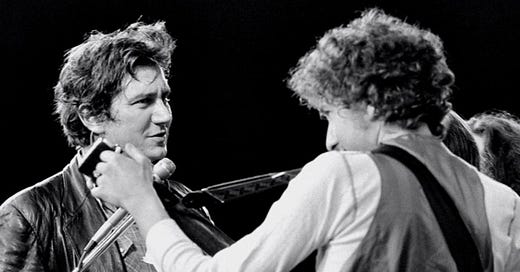



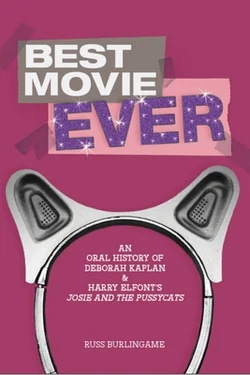
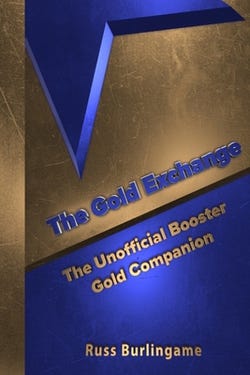
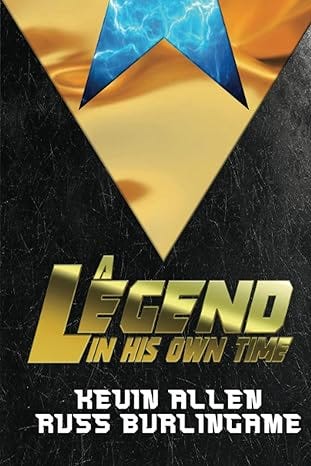
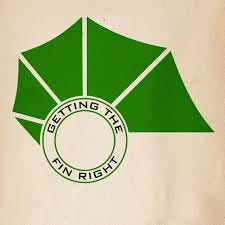
Nice. I have literally *never* heard of Phil Ochs (but then I'm not a fan of Dylan, either, so just a scene I'm a know-nothing about.) But I quickly put on his I Ain't Marching Anymore album while reading this, and he's pretty great. Fucking wizard with that guitar and great voice, too!
Good to see this piece. I'm currently writing a post on songs about protest singers, which Phil Ochs features in. As I haven't seen A Complete Unknown, I was curious to know whether Ochs appeared in the film. My search brought me to your post, which I very much enjoyed. I've only read the Marc Eliot book on Ochs (and that was long ago - been flicking through again this week while working on my post) and am keen to read the others. I look forward to hearing more about the podcast.